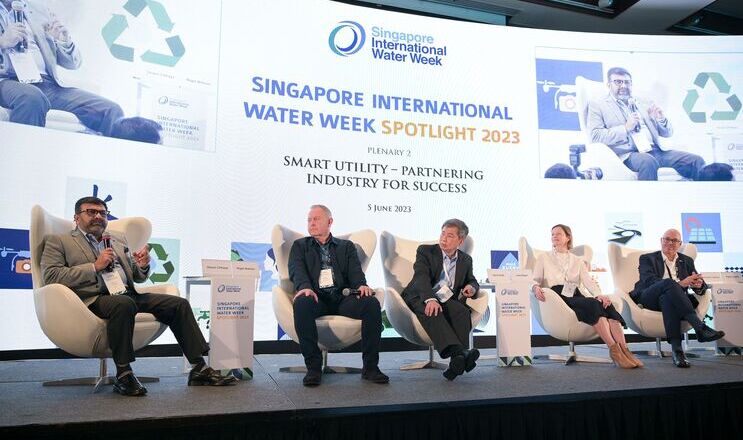Home >
Landing Page >
Spotlight 2025 >
Programme >
High-Level Panels
High-Level Panels
TUESDAY, 24 JUNE 2025
Singapore EXPO Meeting Rooms
ROOM 1
|
The SIWW-IAHR High Level Panels, co-organised with IAHR for both SIWW Spotlight 2025 and IAHR2025 Singapore delegates, will feature high-level panellists who will present case studies and solutions on how industry can provide access to knowledge, technology and innovation to support the transformation of cities to become more climate resilient.
|

|
Programme
TUESDAY, 24 JUNE 2025
| 9:00 AM – 10:30 AM |
Panel 1 – Climate-Resilient Cities: The Pivotal Role of Water
Water plays a pivotal role in various urban systems, contributing to the resilience of cities in the face of climate change. In transportation, water management systems—such as stormwater infrastructure and flood barriers—ensure that roads, railways, and public transport networks remain functional during extreme weather events. In the energy sector, water is essential for cooling systems in power plants and for the production of hydroelectric energy, making efficient water use and management key to maintaining energy security. In housing and buildings, water-efficient technologies like rainwater harvesting and greywater recycling reduce dependence on freshwater sources, while green roofs and permeable surfaces mitigate heat islands and promote stormwater absorption. In public health, access to clean water and effective sanitation systems are critical for preventing waterborne diseases, especially during flood events. By integrating water into these urban systems—through nature-based solutions, infrastructure enhancements, and policy innovations— cities can strengthen their climate resilience and become more liveable. |
| 10:30 AM – 11:00 AM | Networking Morning Coffee Break |
| 11:00 AM – 12:30 PM |
Panel 2 – Flood-Resilient Cities: How do we get there?
Improving city resilience to floods and extreme weather events requires a comprehensive approach that combines infrastructure enhancements, proactive urban planning, and community engagement. Cities must invest in robust drainage systems, flood barriers, and climate-adaptive buildings, while incorporating green solutions like permeable surfaces, urban forests, and restored wetlands to manage stormwater and reduce flood risks. Early warning systems, coupled with well-defined emergency preparedness plans, are crucial for minimising damage and protecting lives. Strategic zoning regulations and sustainable land-use practices help prevent development in flood-prone areas, while community-based resilience initiatives ensure that residents are informed and prepared. By leveraging data, advanced modeling, and fostering collaboration across sectors, cities can strengthen their capacity to withstand extreme weather, and ultimately creating safer environments for their communities. |
